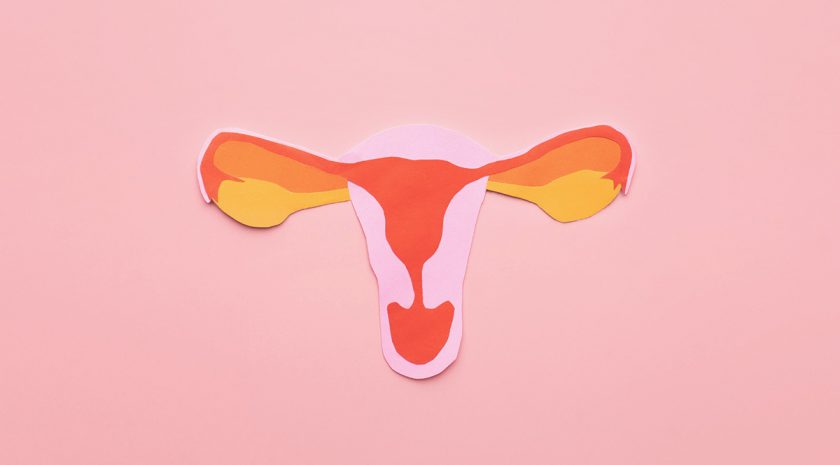
Endometriosis is a common condition that is ‘invisible-from-the-outside’. You might not be able to see it but people with this chronic condition can experience years and even decades of pain. Unfortunately, this pain can be made worse by a delayed diagnosis with the average time from first onset of symptoms to diagnosis of 7-12 years.
So, what is endometriosis?
Endometriosis is a condition that occurs when cells similar to those that line the uterus (womb) are found in other parts of the body. It most commonly occurs in the pelvis and can affect the reproductive organs.
These cells outside the uterus can grow to form areas or patches that bleed and leak fluid in response to hormones at the time of the period. This leads to pain and scarring.
What are the symptoms and can it be treated?
The most common symptom is painful periods which can turn into pain that happens even when you aren’t having your period. Everybody will experience different symptoms and there is no one specific symptom that means you have endometriosis. If you feel like you might have endometriosis or are having any of the symptoms mentioned talk to a health professional about these symptoms.
Symptoms can include:
- painful periods
- pelvic pain
- pain during sex
- heavy menstrual bleeding
- irregular bleeding or bleeding outside your period (including bleeding after sex)
- pain going to the toilet (bladder or bowels)
- increased bloating
- vaginal discomfort
- mood symptoms including increased tiredness
Typically, symptoms become more severe over time. Pain and bleeding that causes someone to miss out on school, work or social activities should not be ignored and if you’re experiencing this it’s a good idea to be assessed by a doctor experienced in sexual health.
If you are experiencing these symptoms it’s often helpful to record them across a period of time to present to your doctor. This will provide support when it comes to putting together a treatment plan.
There is no ‘cure’ for endometriosis however there is a range of treatment options. The treatment for endometriosis varies from person to person and often depends on how long someone has had symptoms and how severe they are. For more information on treatment you can read our Endometriosis Fact Sheet.
What causes endometriosis?
It is not known what causes endometriosis but there are certain factors that can play a role, these include:
- Family history: if you have a close family member with endometriosis you are 7-10 times more likely to also have endometriosis.
- Retrograde menstruation: this is where blood flows backwards into the pelvis during a period. In most people the blood, which contains the cells that line the uterus, is absorbed or broken down by the body and causes no symptoms. However, in people with endometriosis, this endometrial tissue starts to grow inside the pelvis.
- Other environmental and immune factors.
How might endometriosis impact sex?
People who experience endometriosis may experience painful sexual intercourse.
Pain can vary from person to person and can depend on the type of position and where you might be in your menstrual cycle. For example, some people only experience pain during deep penetration (i.e. penis-in-vagina penetration or sex toy penetration) and others may only feel discomfort after sexual intercourse.
Some people with endometriosis also have vaginismus, which is when the muscles of the vagina spasm, meaning penetration is painful or sometimes not possible. Some people also may have trouble using tampons.
Some steps you can try to reduce pain during sex:
- if penetration is painful – stop and don’t try to “push through”
- practice gentle and slow penetration
- engage in foreplay to increase lubrication
- use lube
- communicate with your sexual partner/s about what feels comfortable or not.
If you are experiencing pain during sex, speak to your doctor about possible treatments. You can learn more about pain during sex here: Pain and Sex, What is the Cause?
Talking to your sexual partner/s about endometriosis:
As always, communication is key to a healthy sex life. Talking to your partner/s can feel a little intimidating but communicating your wants and needs around pleasure and sex will create a better overall experience. Sex should be enjoyable for all people involved.
Tips on how to approach this:
- choose a ‘safe space’ to talk: for example talking outside of the bedroom might create less pressure on the situation
- educate your partner/s about endometriosis: explain what it is and how it can impact other areas of your life
- be supportive: answer any questions your partner may have and acknowledge how they feel
- explore solutions: work together to build strategies on how to have pleasurable sex for everyone
- creating intimacy in new ways: look for ways to create intimacy and connection that aren’t the same-old-same-old, for example, cuddling while watching a movie or trying out mutual masturbation or oral sex
- you might also benefit from joining endometriosis support groups i.e. hear from the experiences of others and how they may have overcome their challenges
Other effects of endometriosis
Endometriosis impacts one in ten people who have periods in Australia. It can have life changing consequences for people including many missed days of school or work every month. Some people struggle to finish high school or go to university or TAFE because of pain or other symptoms. It can also cause infertility and many people are first diagnosed when they see a fertility doctor because they can’t get pregnant.
What if I have endometriosis?
Don’t despair – not everyone with endometriosis will have all of these symptoms. There are many treatments and there is more research happening every day. Recently, a National Action Plan for Endometriosis has been announced to improve endometriosis diagnosis and primary care support.
The most important thing to know is that people who are diagnosed and treated early will have the best outcomes. If you are reading this and think that this might be you, see a health professional. If you feel they aren’t taking you seriously then get another opinion. Look for a doctor that specialises in sexual and reproductive health. Even if you don’t have endometriosis you shouldn’t just put up with bad period/pelvic pain because it can be helped.
Have a few more questions?
Being diagnosed with endometriosis can be overwhelming. If you’d like more information you can speak to SHINE SA or a GP. If you’re nervous about speaking to someone face-to-face you can call SHINE SA’s Sexual Healthline service where you can speak to a sexual health nurse for free.
Call 1300 883 793, the Sexual Healthline is open Monday – Friday, 9:00am – 12:30pm.
Useful links:
SHINE SA Endometriosis Fact Sheet
QUENDO App: Tracking App for Endometriosis










